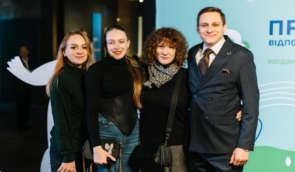Human rights activists called for the release of Crimean political prisoners at the OSCE Warsaw Human Dimension Conference
ZMINA, Crimea SOS and the Crimean Human Rights Group (CHRG) held the event “Life in captivity: 10 years of the occupation of Ukrainian Crimea and resistance to Russian aggression” at the OSCE Warsaw Human Dimension Conference with the support of the missions of Ireland and Latvia to the OSCE, the Ministry of Foreign Affairs of the Czech Republic and the Human Rights House Foundation.
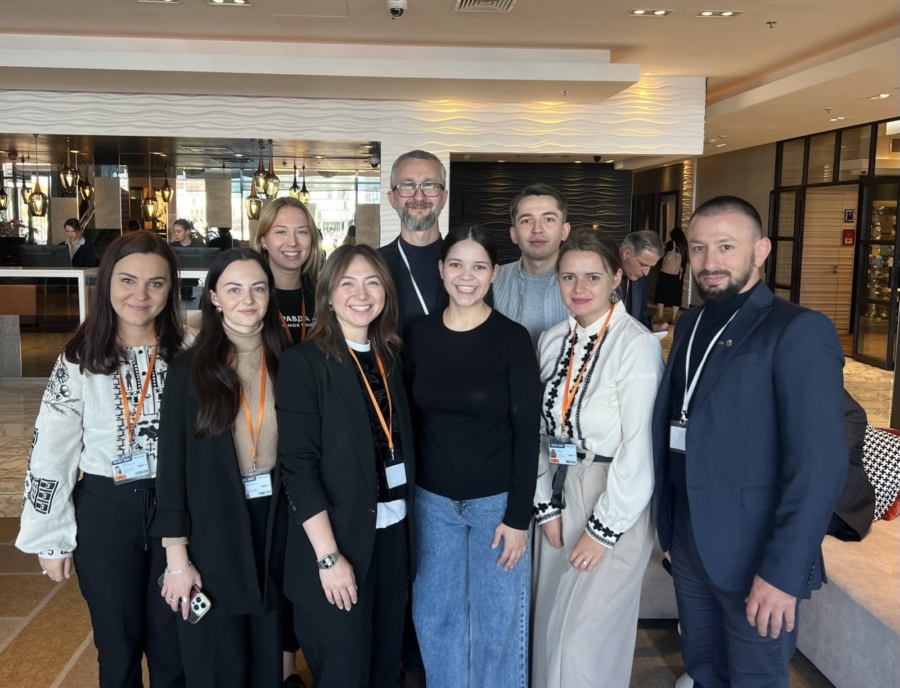
Russia’s armed aggression against Ukraine began on February 20, 2014, with the invasion of the Russian Armed Forces, intending to seize a part of Ukrainian territory – the Autonomous Republic of Crimea and the city of Sevastopol. Today, the Crimean peninsula remains de facto under the control of the Russian Federation. It has turned into an open prison where residents live under constant risk of persecution.
Viktoria Nesterenko, Project Manager at the Human Rights Centre ZMINA, said that currently there are 218 political prisoners from Crimea, of which 132 are Crimean Tatars who are held in pre-trial detention centres and colonies in the temporarily occupied territory of Crimea or have been transferred to Russia. Reportedly, 67 of them suffer from a lack of medical assistance and more than half of them are in critical condition.
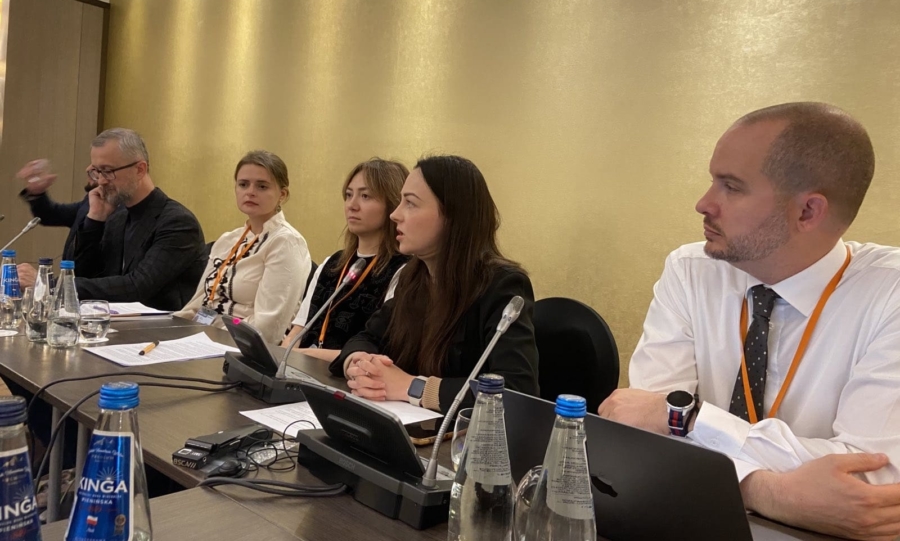
Iryna Baran from the CHRG added that there are also women in prison, whose situation is particularly vulnerable. In particular, they are Iryna Danylovych, a journalist and human rights activist, who was sentenced to 6 years and 11 months in prison, as well as Halyna Dovhopola, a 69-year-old activist, who was sentenced to 12 years in prison.
In addition, Baran highlighted the violation of freedom of expression: “After the full-scale invasion, the occupying Russian authorities expanded the tools of pressure on citizens: administrative punishments for violation of Article 20.3.3 of the Criminal Code of the Russian Federation “discrediting the armed forces” became common. During the full-scale incursion, the Crimean Human Rights Group documented at least 850 administrative proceedings under this article. Residents of occupied Crimea are fined for posting Ukrainian symbols in social networks and messengers, for liking, commenting and reposting Ukrainian content. These administrative violations put pressure on the resistance in Crimea.“
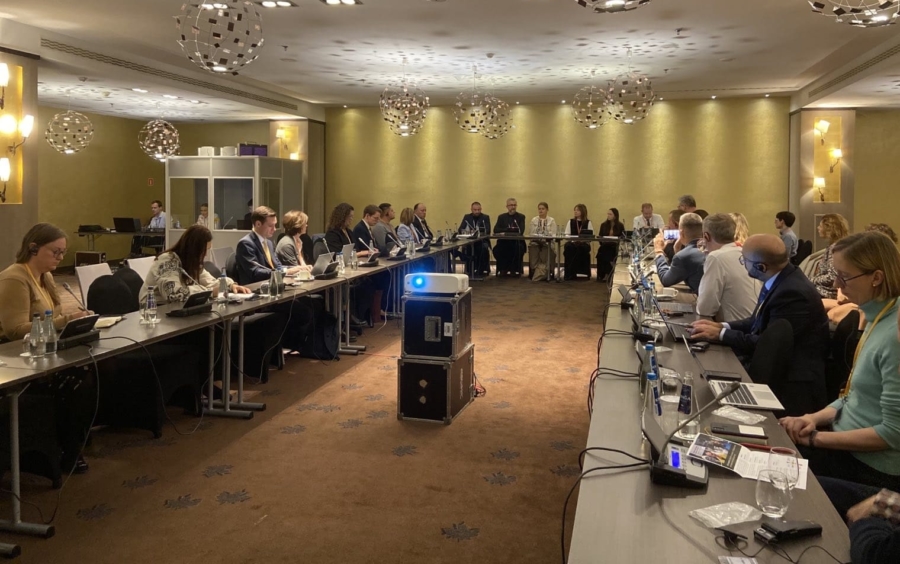
In addition, Russia has severely limited the right to freedom of religion and belief in Crimea through registration requirements under Russian law. Only the Ukrainian Orthodox Church of the Moscow Patriarchate continued its existence and did not face strict registration requirements. The occupiers outlaw religious communities they cannot control, leading to the use of anti-extremism and anti-terrorism legislation to persecute their members.
“Currently, about 30 Jehovah’s Witnesses have been prosecuted for their religious activities in Crimea. The Muslim population of Crimea, the majority of which are Crimean Tatars, was subjected to severe repression. Russia continued to persecute individuals for some forms of worship, including imams who led prayers in their mosques, as so-called ‘illegal missionary activity’,” said Sabina Ilias of Crimea SOS.
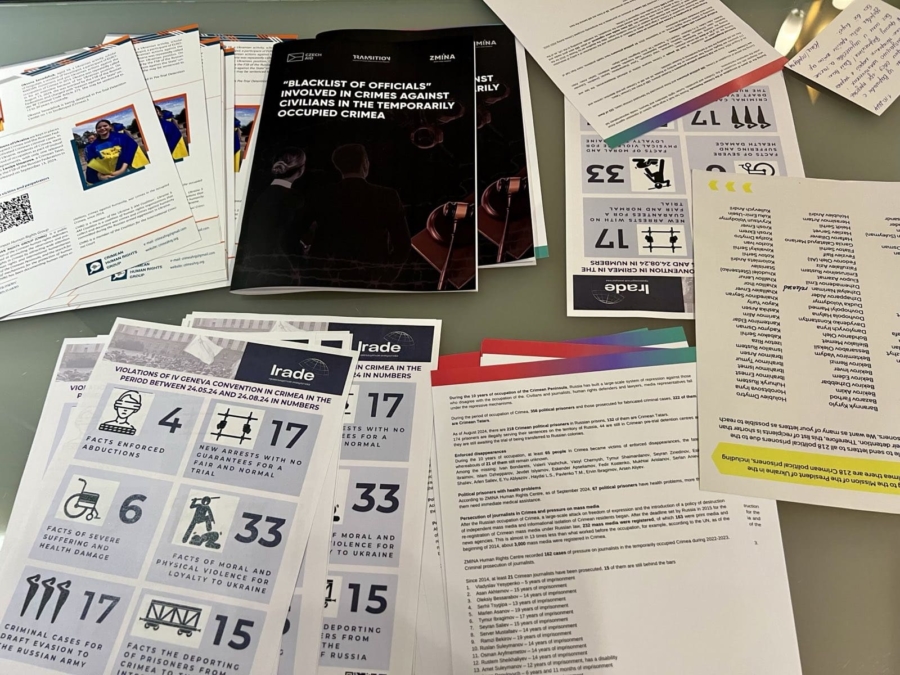
Fevzi Mamutov, the brother of a Crimean political prisoner of the Kremlin, spoke about the massive persecution due to the expression of views, an active position, religious beliefs and ethnic affiliation using the example of his brother, Ali Mamutov. Ali was jailed in March of this year and now faces up to 17 years in prison on trumped-up “terrorism” charges. “Imagine that at four in the morning, armed people break into a small house, wake up the whole family, and shine spotlights. Imagine how a machine gun rests in the side of a 13-year-old child. And this child says that she is not afraid for herself, but for her father, who was taken away. And my father is my brother Ali Mamutov,” recalls Fevzi about the detention of his brother.
“Ali is not a criminal, he is a symbol of our struggle for freedom and dignity. He, like many other of our brothers and sisters, always defended people’s rights, their dignity, their inalienable right to be free in their native land. But that is exactly what he is being punished for. We are not talking about justice. We are fighting a system that seeks not justice, but oppression. A system that uses the courts as a weapon against those who dare to speak the truth and defend their own,” he added.
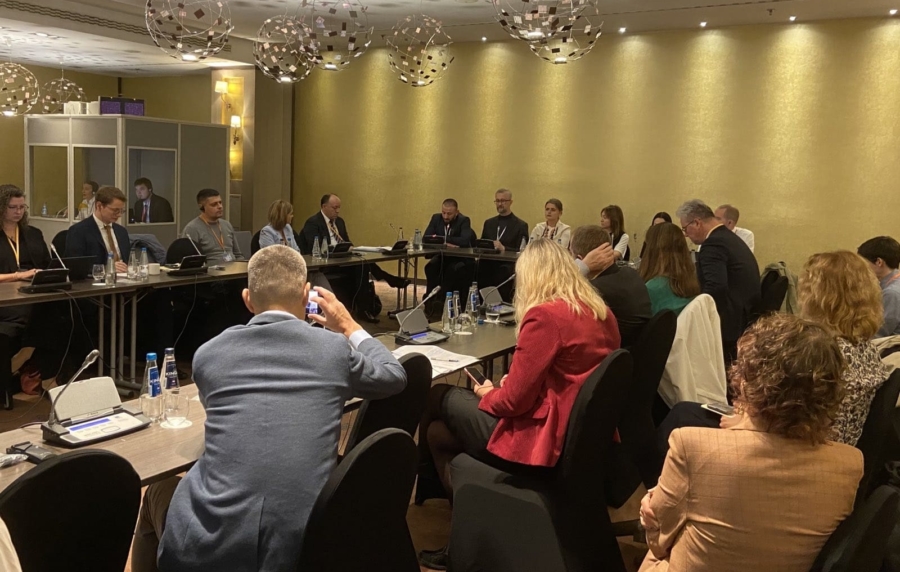
Released political prisoner and First Deputy Chairman of the Mejlis of the Crimean Tatar people, Nariman Dzhelyal, also shared his story of imprisonment: “In September 2021, five people were detained, including me. Four of them went through torture: they were beaten, threatened with murder and the massacre of children, tortured with electric current, because of which they were forced to slander themselves and each other. Political prisoners are forced to learn and sing the national anthem of Russia – individually and in chorus. If you refuse, you will be beaten with batons or electric shockers. They would not provide medical assistance: in the prison of the Krasnoyarsk region I was sick and I was not even allowed to lie down on the bed and rest, take my temperature or take pills.“
Nariman Dzhelyal managed to be released in June 2024. He called on the international community to work on the release of other political prisoners and to prevent the continuation of persecution, as well as to release the occupied territories of Ukraine to guarantee the non-repetition of gross violations of human rights.
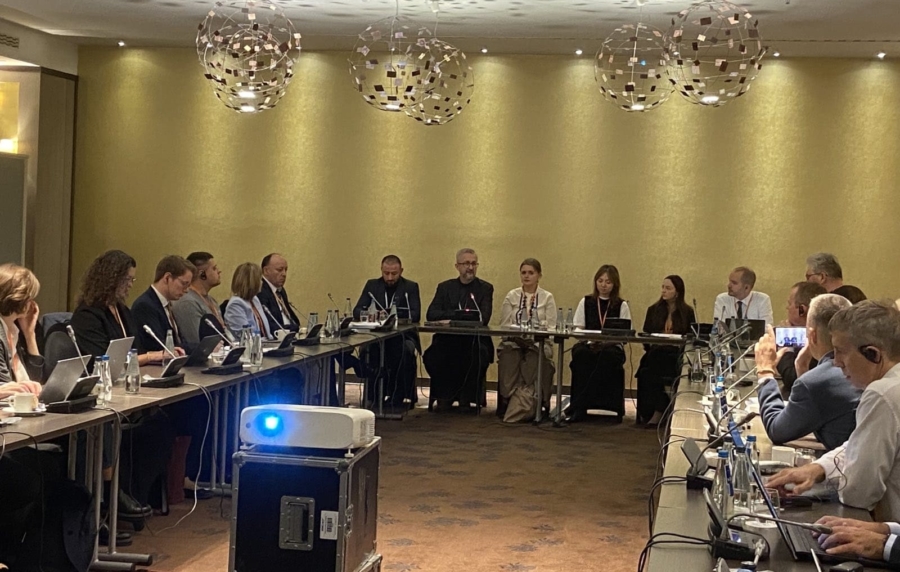
The experts also called for sanctions against the people responsible for the persecution, politically motivated sentencing and inhumane detention of political prisoners; to implement the recommendations of the Moscow Mechanism of the OSCE; to actively participate in the work of the International Platform for the Release of Civilians Illegally Detained in the Russian Federation; support native political prisoners, as well as human rights defenders and media in the occupied territories.
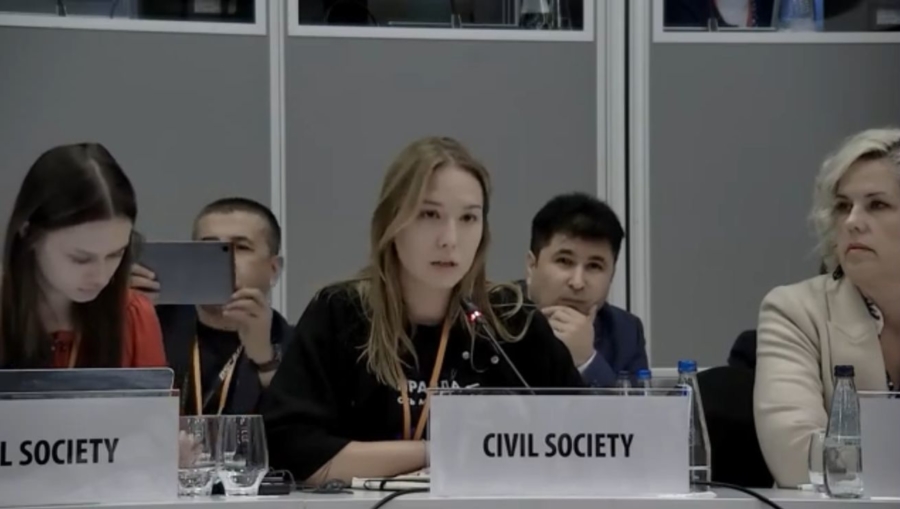
In addition, Tetiana Zhukova, International Advocacy Manager at ZMINA, spoke at the plenary session and called for writing letters to political prisoners, becoming their mentors and mentioning the names of those who are in illegal detention. She also emphasized that the Russian invasion of Ukraine began with Crimea, so all efforts to achieve justice and provide compensation must relate to human rights violations since 2014.
The project is implemented with the financial support of the Ministry of Foreign Affairs of the Czech Republic as part of the Transition Promotion Program. The views expressed in this material are those of the authors and do not reflect the official position of the Ministry of Foreign Affairs of the Czech Republic.
If you have found a spelling error, please, notify us by selecting that text and pressing Ctrl+Enter.




